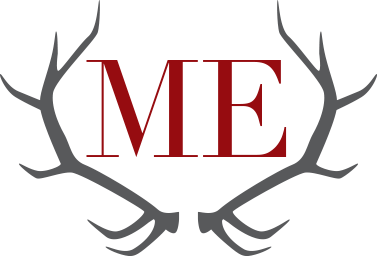If you read a book at the right time, it will become something like religion to you.
This is true even in cases where the book doesn’t attempt to construct a cosmology for you, but the Gunslinger does.
Fans of this book always sound like zealous converts when we try to explain to people why they should read it. We’re not offering you a good time. We’re telling you that there are some doors you pass through that change who you are, the kind that close behind you forever. We’re trying to explain why we believe we will always find a Stone, a Rose, a Door. And that is the truth.
The Gunslinger tells the story of a man who travels between worlds and timelines, chasing after revenge sometimes and other times his destiny. It’s highly poetic and associative, especially in the first volume. (I can’t always keep them straight in my head.)
This book is drugs. It’s not like drugs, it is drugs. Reading this book gave me my first taste of psychedelics long before I ever got my hands on the illegal kind. There is a scene in the middle of the book wherein Roland, the Gunslinger, has to sit in a circle of speaking stones and think his way through the universe. There’s no way to describe it and even now I don’t know how someone makes words into drugs. There are a few who can do it: King, Bradbury, Valente. I couldn’t breathe when I read it. I couldn’t see, and I couldn’t stop. The only time I’ve ever been locked into anything like this was when I was being electrically shocked. This book is a force and the reader is a conduit. That’s all.
The series has good points and bad. The period of time when the author had been hit by a van and nearly paralyzed gives the books some of their worst and best moments. Stephen King dares to be meta in a way that few authors dare; his books take place in a connected multiverse in which he is one of many not-quite-sane gods. Respect is too small a word.
I was new to the ideas of fate and a fate-touched circle of companions. I was not new to the the concept of an evil and threatening multiverse that tries to keep heroes from their destiny, their ka. I was new and not new to this book. I bought the second in the series, “The Drawing of the Three” by accident and I was so utterly seduced that I tramped through bookstores for nearly a year until I found its predecessor. And then I lined it up like coke on a mirror and snorted it, as King would have recommended.
As a writer, I can take almost nothing from it. I firmly believe that there are moments in an artist’s work where something much bigger than them is in charge. That is the true meaning of genius: possession. You are not your own, and you must trust that Other to make the work happen through you. The Gunslinger is absolutely one such work of art. I mostly learned from King’s commentary on his fans’ decades-long demands for the series to end that what we create doesn’t come from us, and in the end it hardly belongs to us. I waited him to finish, knowing that the accident wouldn’t stop him. I waited for him to finish, knowing that 4 out of every 5 times, he fucks up the dismount spectacularly. I waited for him to finish, knowing that the end of something is almost never as good as its beginning.
If a book reads you at the right time, it will become part of your canon forever.
This series was inspired by the latest round of the endless argument about what constitutes canon, a song of gasbags and bad taste, a newsletter by the unstoppable Sarah Gailey, and a neverending desire to tell people what to read. These books are the Canonical Meg.



